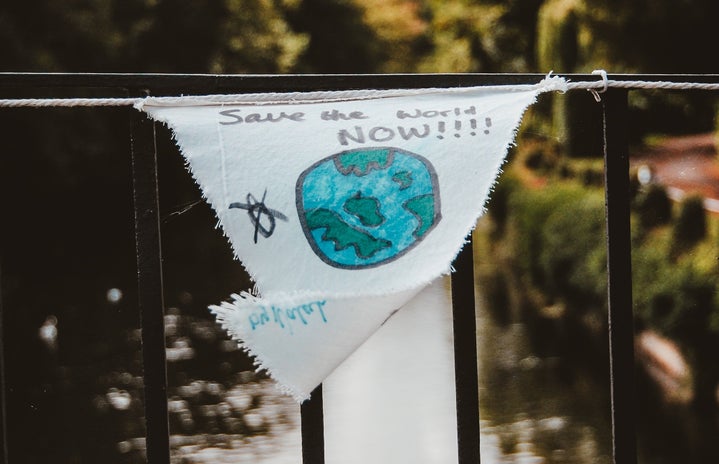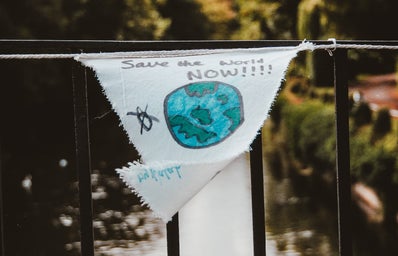From devastating wild fires to hurricanes, the real-life impacts of climate change are no longer something we can ignore. The fact that we are destroying our planet worries me daily, and sometimes I panic over the lack of control I have.
While there is not a specific name for this anxiety, some have labeled it eco-anxiety or ecological grief.
Our environment is a constant topic of debate and discussion in modern times, and it can cause a toll on our mental health. As a white woman who lives in the U.S., I cannot help but feel partially responsible for climate change in some way. My own carbon footprint looms over me and often influences my consumption decisions. Most people place the blame on themselves, but I think the real reason that people feel so helpless about the environment is the absolute dominance of the fossil fuel industry.
Photo courtesy of Getty Images
According to a 2017 report by the Climate Accountability Institute, 70 percent of the world’s greenhouse gas emissions can be traced back to 100 large companies, such as ExxonMobil, Shell, and Gazprom. These fossil fuel corporations are the root causes of greenhouse gas emissions, so they would risk losing their wealth if strict pro-environment legislation was implemented. These corporations also happen to lobby against climate regulations to advance their own political interests.
More than $2 billion was spent on lobbying climate change legislation from 2000 to 2016, with the fossil fuel, transportation, and utility industries outspending the renewable energy industry and environmental groups 10 to 1. These corporations have the power and influence in our society, and sadly, the negative impact is on those who do not. The privileged can adapt to harsh climactic circumstances; however, marginalized communities are less likely to have the finances and resources to deal with climactic events and health issues. In the event of an extreme climate emergency, economic and sociological factors can be devastating.
Photo courtesy of Jill Pelto
It is hard to not feel existential dread when the situation feels so pessimistic, but these concerns are part of the human condition. The tragic loss of our environment gives me a sense of responsibility. We can all do easy things like recycle, use less plastic, and eat less meat. It helps my eco-anxiety to feel like I am contributing to solving the problem. As much as individuals should be responsible for their own consumption, large industries should also be held responsible for causing it. The power of consumerism is strong but it doesn’t compare to that of these international corporations.
Our nation is so divided over this issue, and sometimes it is hard to understand the other side, but ultimately, we need compassion to educate others. Climate change is entangled within our society’s sociological and economic inequalities, and in order to fix it we need to change more than just our consumption choices. Our governments need to implement strict pro-environment legislation.
Photo courtesy of Christopher Busiinge



